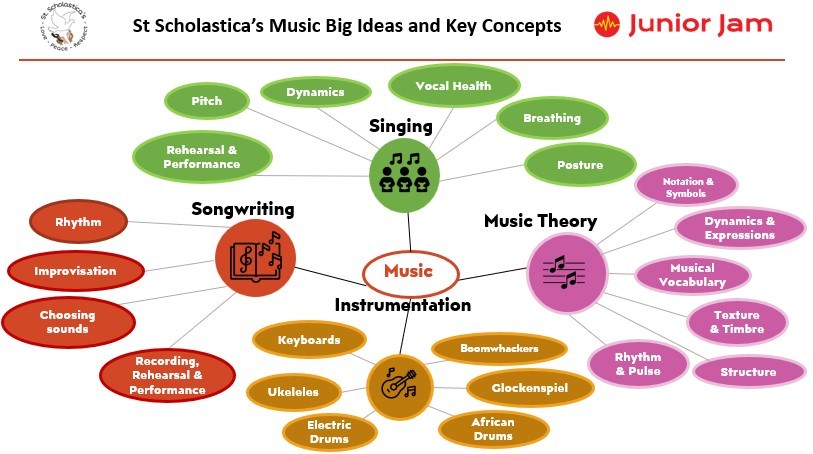"Music has a power of forming the character and therefore should be introduced into the eduaction of the young." - Aristotle
Our Vision for Music
At St Scholastica's, we believe providing pupils with a rich and diverse music education is fundamental to helping to unlock their creative potential. Our music curriculum sets out to allow children a broad range of musical experiences within primary school, giving pupils the foundation to explore their talents and passions

